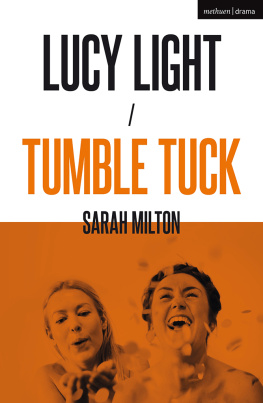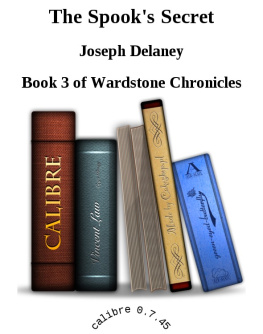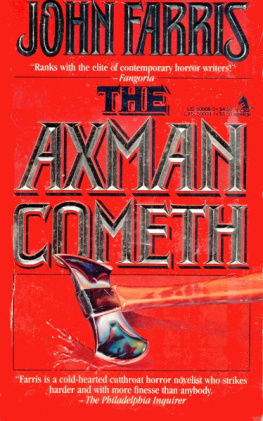Preface
So many of my friends have urged me to give a short sketch of my varied life that I have consented, and herewith present it for the consideration of my readers. Those who were with me in the days of slavery will appreciate these pages, for though they cannot recur with any happiness to the now "shadowy past, or renew the unrenewable," the unaccountable longing for the aged to look backward and review the events of their youth will find an answering chord in this little book.
Those of you who have never suffered as we have, perhaps may suppose the case, and therefore accept with interest and sympathy the passages of life and character here portrayed and the lessons which should follow from them.
If there is a want of unity or coherence in this work, be charitable and attribute it to lack of knowledge and experience in literary acquirements. As this is a world of varied interests and many events, although we are each but atoms, it must be remembered, that we assist in making the grand total of all history, and therefore are excusable in making our affairs of importance to ourselves, and endeavoring to impress them on others. With this reason of my seeking your favor, I leave you to the perusal of my little tale.
L. A. D.
CHAPTER I.
"Soon is the echo and the shadow o'er,
Soon, soon we lie with lid-encumbered eyes
And the great fabrics that we reared before
Crumble to make a dust to hide who dies."
In the year 18, Mr. and Mrs. John Woods and Mr. and Mrs. Andrew Posey lived as one family in the State of Illinois. Living with Mrs. Posey was a little negro girl, named Polly Crocket, who had made it her home there, in peace and happiness, for five years. On a dismal night in the month of September, Polly, with four other colored persons, were kidnapped, and, after being securely bound and gagged, were put into a skiff and carried across the Mississippi River to the city of St. Louis. Shortly after, these unfortunate negroes were taken up the Missouri River and sold into slavery. Polly was purchased by a farmer, Thomas Botts, with whom she resided for a year, when, overtaken by business reverses, he was obliged to sell all he possessed, including his negroes.
Among those present on the day set apart for the sale was Major Taylor Berry, a wealthy gentleman who had travelled a long distance for the purpose of purchasing a servant girl for his wife. As was the custom, all the negroes were brought out and placed in a line, so that the buyers could examine their good points at leisure. Major Berry was immediately attracted by the bright and alert appearance of Polly, and at once negotiated with the trader, paid the price agreed upon, and started for home to present his wife with this flesh and blood commodity, which money could so easily procure in our vaunted land of freedom.
Mrs. Fanny Berry was highly pleased with Polly's manner and appearance, and concluded to make a seamstress of her. Major Berry had a mulatto servant, who was as handsome as an Apollo, and when he and Polly met each other, day after day, the natural result followed, and in a short time, with the full consent of Major Berry and his wife, were married. Two children were the fruit of this marriage, my sister Nancy and myself, Lucy A. Delaney.
While living in Franklin county, Major Berry became involved in a quarrel with some gentleman, and a duel was resorted to, to settle the difficulty and avenge some fancied insult. The major arranged his affairs and made his will, leaving his negroes to his wife during her life-time and at her death they were to be free; this was his expressed wish.
My father accompanied Major Berry to New Madrid, where the fatal duel was fought, and stayed by him until the end came, received his last sigh, his last words, and closed his dying eyes, and afterwards conveyed the remains of his best friend to the bereaved family with a sad heart. Though sympathizing deeply with them in their affliction, my father was much disturbed as to what disposition would be made of him, and after Major Berry was consigned with loving hands to his last resting place, these haunting thoughts obtruded, even in his sleeping hours.
A few years after, Major Berry's widow married Robert Wash, an eminent lawyer, who afterwards became Judge of the Supreme Court. One child was born to them, who, when she grew to womanhood, became Mrs. Francis W. Goode, whom I shall always hold in grateful remembrance as long as life lasts, and God bless her in her old age, is my fervent prayer for her kindness to me, a poor little slave girl!
We lived in the old "Wash" mansion some time after the marriage of the Judge, until their daughter Frances was born. How well I remember those happy days! Slavery had no horror then for me, as I played about the place, with the same joyful freedom as the little white children. With mother, father and sister, a pleasant home and surroundings, what happier child than I!
As I carelessly played away the hours, mother's smiles would fade away, and her brow contract into a heavy frown. I wondered much thereat, but the time cameah! only too soon, when I learned the secret of her ever-changing face!
CHAPTER II.
Mrs. Wash lost her health, and, on the advice of a physician, went to Pensacola, Florida, accompanied by my mother. There she died, and her body was brought back to St. Louis and there interred. After Mrs. Wash's death, the troubles of my parents and their children may be said to have really commenced.
Though in direct opposition to the will of Major Berry, my father's quondam master and friend, Judge Wash tore my father from his wife and children and sold him "way down South!"
Slavery! cursed slavery! what crimes has it invoked! and, oh! what retribution has a righteous God visited upon these traders in human flesh! The rivers of tears shed by us helpless ones, in captivity, were turned to lakes of blood! How often have we cried in our anguish, "Oh! Lord, how long, how long?" But the handwriting was on the wall, and tardy justice came at last and avenged the woes of an oppressed race! Chickamauga, Shiloh, Atlanta and Gettysburgh, spoke in thunder tones! John Brown's body had indeed marched on, and we, the ransomed ones, glorify God and dedicate ourselves to His service, and acknowledge His greatness and goodness in rescuing us from such bondage as parts husband from wife, the mother from her children, aye, even the babe from her breast!
Major Berry's daughter Mary, shortly after, married H. S. Cox, of Philadelphia, and they went to that city to pass their honeymoon, taking my sister Nancy with them as waiting-maid. When my father was sold South, my mother registered a solemn vow that her children should not continue in slavery all their lives, and she never spared an opportunity to impress it upon us, that we must get our freedom whenever the chance offered. So here was an unlooked-for avenue of escape which presented much that was favorable in carrying out her desire to see Nancy a free woman.















